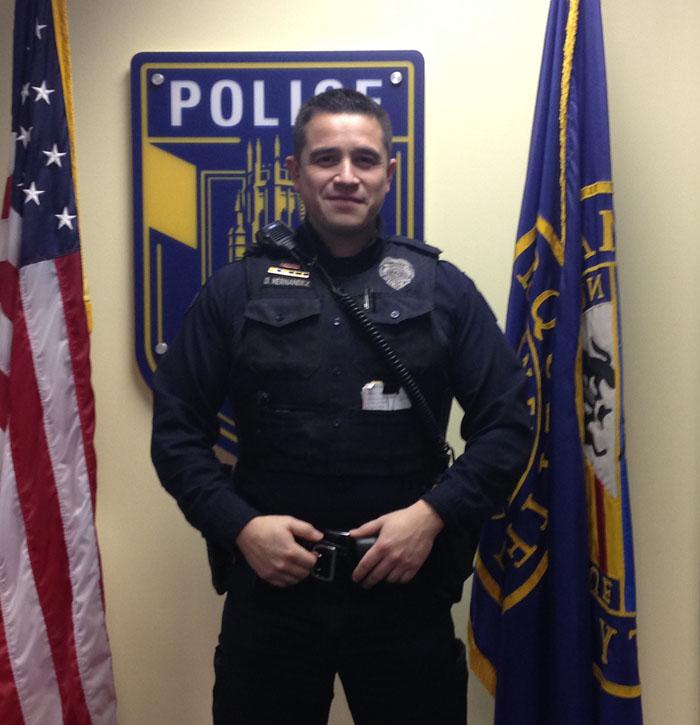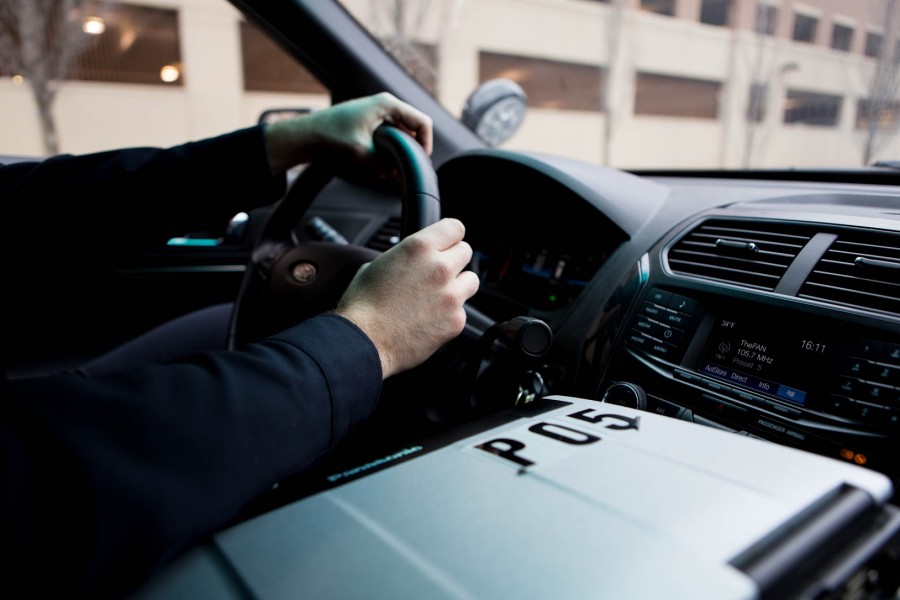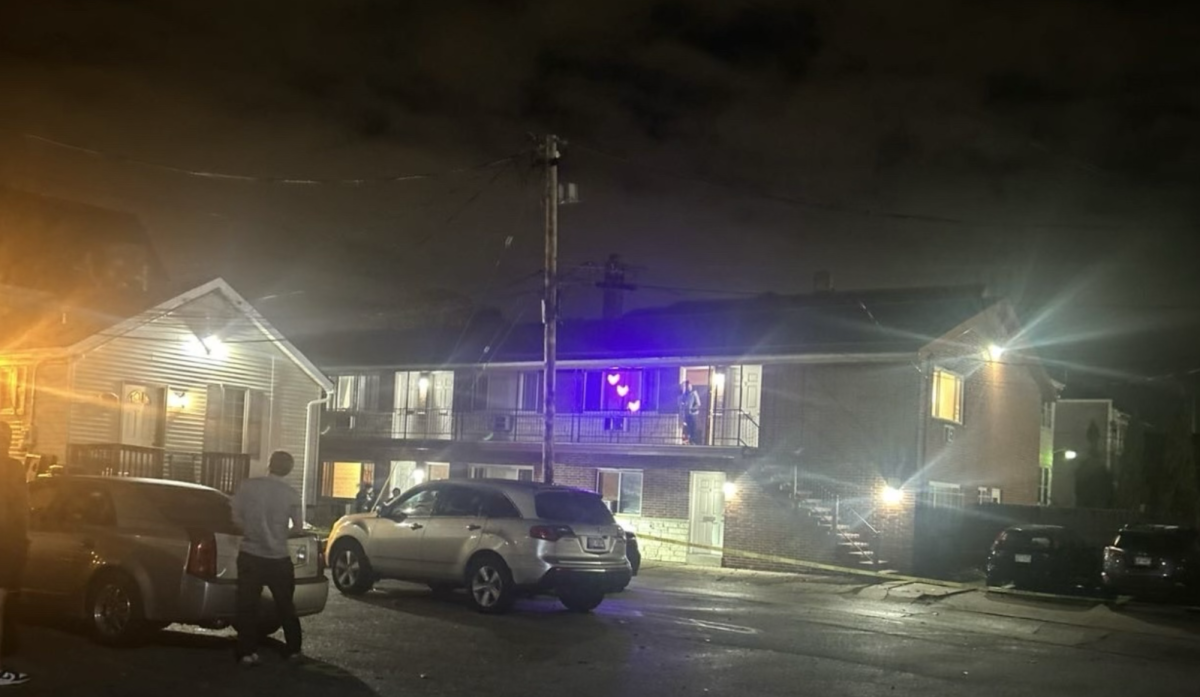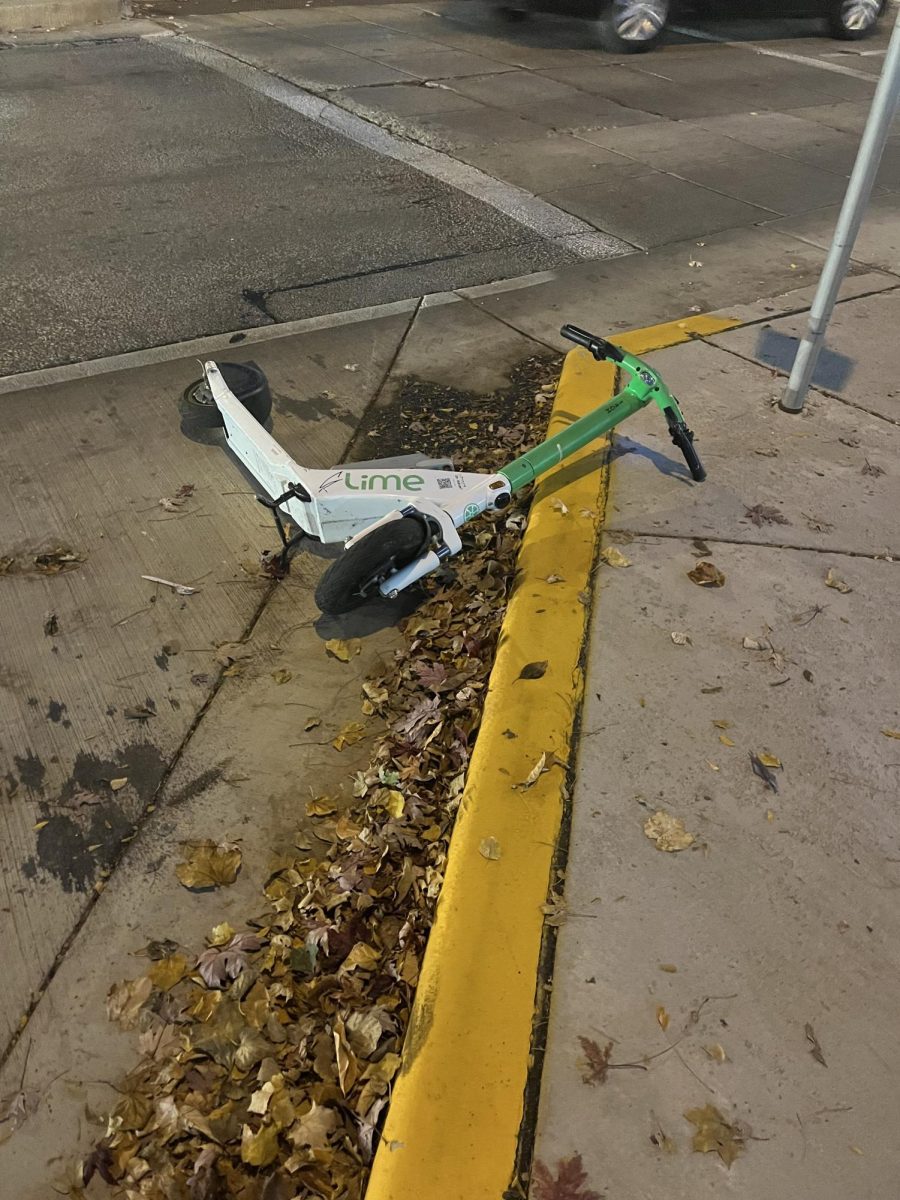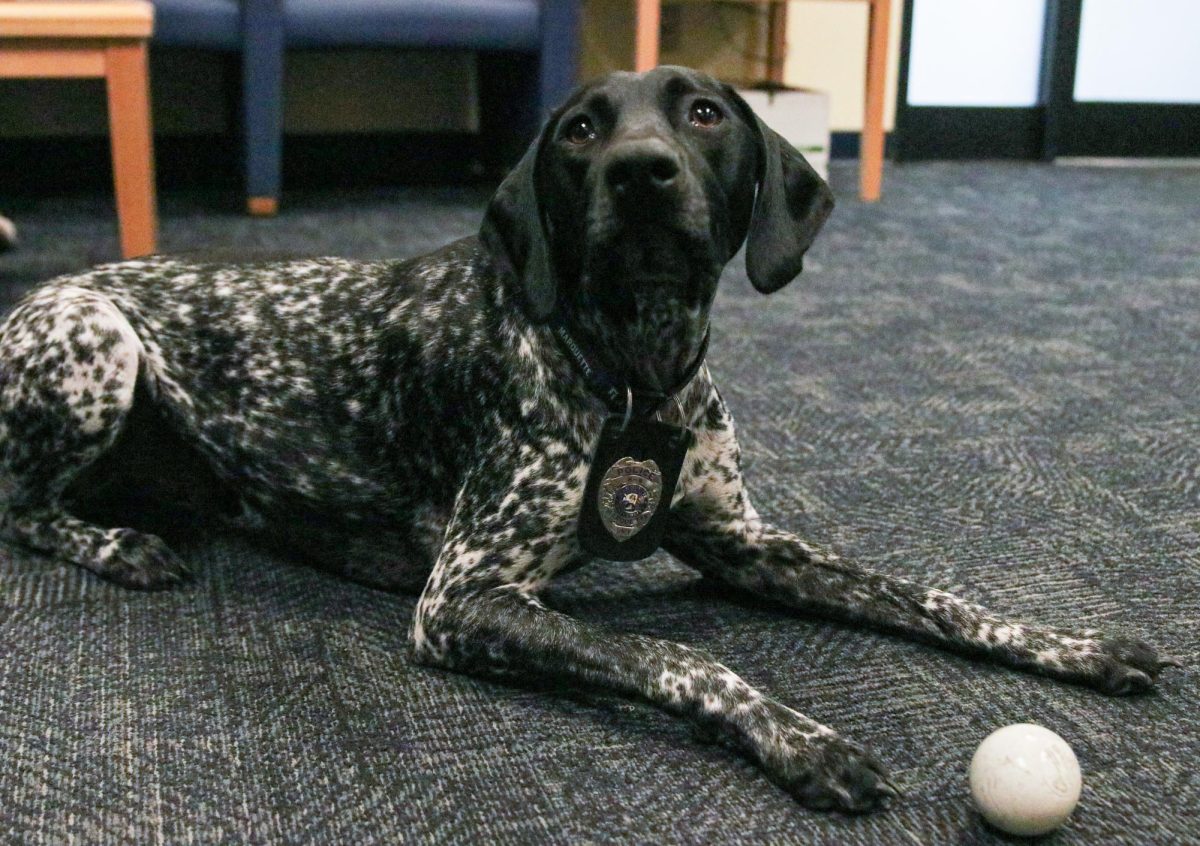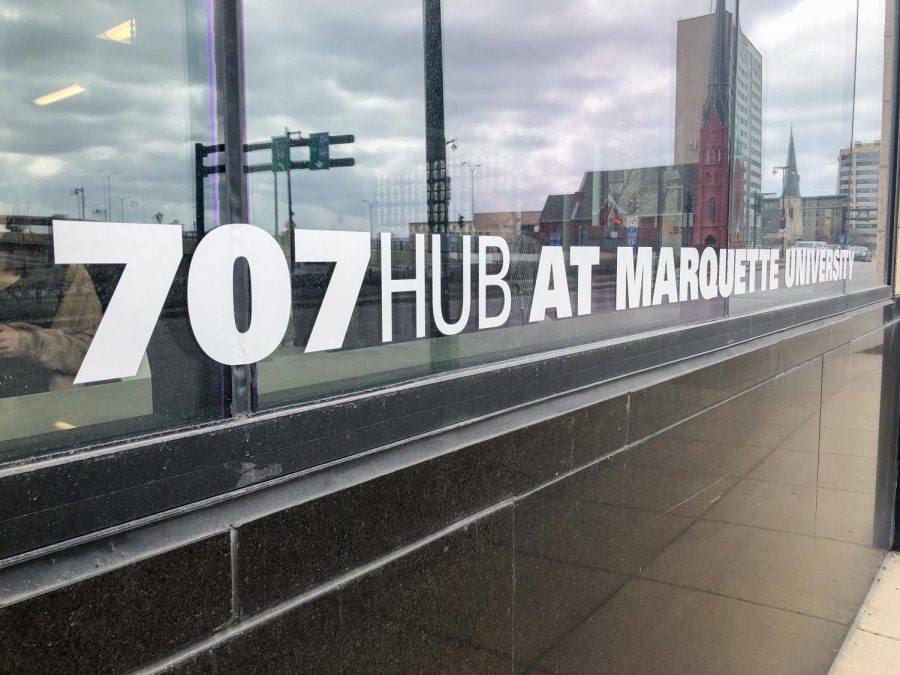The topic of police and race is tense and complicated, and Milwaukee is no exception. The civil unrest in Sherman Park last August followed the fatal shooting of 23-year-old Sylville Smith by a Milwaukee Police Department officer. The unrest was part of a tumultuous summer that included the deaths of racial minorities during interactions with police officers, and the killing of five officers in Dallas.
Daniel Hernandez was a Marquette public safety officer for more than five years before becoming a police officer in May 2015 with the creation of the Marquette Police Department.
Hernandez discussed, among other things, his background, similarities between the Marine Corps and law enforcement, and how his ethnicity (he is 100 percent Mexican) affects the interactions he has while on the job.
This interview has been lightly edited and condensed.
Marquette Wire: Where did you grow up?
Hernandez: I was born in East L.A. My parents lived in East L.A. for a while before we moved to Huntington Park, California, which is still part of Southern California, not too far from East L.A. Then we eventually moved to Commerce, California, in Southern California as well. And then we moved out to Downey, California, so I went through a few elementary schools, a couple middle schools and two high schools. And then eventually my parents relocated to Las Vegas, where I graduated high school and joined the Marines.
Wire: Growing up in Southern California, what was the perception of police officers?
Hernandez: I was always taught, if a police officer stops you, you listen to the police officer. As a kid, you don’t want to get in trouble, and if a law enforcement officer is talking to you, it’s with any grown-up, you give them respect. There really wasn’t, that I can remember, any type of negative perception toward police officers. It was more kind of a scary thing, you know, ‘Don’t do anything wrong, there’s the police, they’re going to take you to jail.’ So that was always on my mind, and prevented me as a younger kid to do anything bad. Once I hit puberty and decided to grow up a little bit, I started getting into some trouble.
Wire: Minor stuff?
Hernandez: Yeah, I was involved in a lot of trespassing because I was a skater kid. I used to skateboard all the time and get stopped by the police.
Wire: Did you know people who had negative or positive interactions with officers?
Hernandez: Yeah, absolutely. I had a lot of cousins, still do actually, have cousins in gangs in East L.A., and coming from a Hispanic background, growing up in East L.A., that’s what was popular. If you weren’t part of a gang, you were questioned, you were peer-pressured into it. I was lucky enough at the time for my parents to relocate before I got really heavy into gangs and stuff. One of my cousins was shot in the head because of a gang rivalry, so I was definitely exposed to that life a little bit. But as far as law enforcement, they were always getting in trouble with the law. Obviously they’re in a gang, so getting caught with graffiti or all sorts of different things.
Wire: When you were growing up, did you think of police officer as a possible career?
Hernandez: No, I did not. No.
Wire: Were you set on joining the Marine Corps?
Hernandez: Even before the Marine Corps I thought I was going to be some kind of a doctor [laughs]…Yeah I never thought law enforcement was going to be part of my career.
Wire: So it was an option only after the Marine Corps?
Hernandez: Yeah.
Wire: And you were in the Corps for 12 years?
Hernandez: Yep, active and reserve. So I did active and reserve time and was an infantry marine. So a lot of the experience as an infantry marine can be very easily rolled into law enforcement. The hyper-awareness, looking for specific things, crime trends, things that pop out at you, so on and so forth. Patrol tactics, room-clearing tactics if it would ever be needed. I went through a lot of specialized courses in close-quarter battle. So all that stuff really can transfer over to law enforcement. As soon as I got off active duty in 2009, I initially applied for Milwaukee Police Department, but they were on a hiring freeze, so the next best thing was Marquette.
Wire: Were you stationed overseas anywhere?
Hernandez: I was, yeah. My initial tour, I was in Iraq in 2004-05. Came back, then I was in Africa for a little bit in 2006, in the country of Niger. Then in 2007-08, I was gone again to Iraq for my second tour. After that I cut off active duty in 2009 and continued on in the Reserves.
Wire: Did being in the Marines impact the way you view race?
Hernandez: The Marine Corps teaches to see everybody green (due to the camouflage color). It doesn’t matter what race, creed, ethnicity, gender—nothing matters, especially in combat. In combat, everything that matters is the guy on the left and the guy on the right, and that’s it. Really, everything goes away. The mission is to stay alive, keep your buddies alive and keep on pushing through. So I don’t think it really affected me.
Not to say there aren’t racist people in organizations, because I definitely was exposed to that in the Marine Corps. But at the end of the day, I really didn’t focus on that, it was more of what we have to do to complete the mission.
Wire: What was the general reaction from friends and family when you were becoming an officer?
Hernandez: Very supportive, just be careful. My mom always said be careful. She was very upset that I was joining the Marine Corps, but she wasn’t too upset that I was becoming a police officer. Just keep your eyes open.
Right now it’s a very difficult time to be a police officer. A lot of traffic stops are very charged, whether it be stemming from things that happen in the news, or different things. But it’s been interesting, to say the least.
Wire: Have police shooting and other events in the news made you more cautious or aware of your job when you’re approaching a traffic stop?
Hernandez: I consider myself always aware, so I don’t think that has changed. The police academy does teach you a lot, but it isn’t until you hit the street and actually do it, that you start to notice different things around you, and because of that you’re just continuously keeping yourself aware. It’s a very vulnerable spot to walk up to a vehicle, and not look at who’s behind you. But that’s why we have backup for every stop.
And the good thing about Marquette is, if you’re near a camera, our command information center is able to zoom in on that traffic stop and keep overview as well, which is great. So we have a lot of things to help us here, but in terms of being extra careful, for me and this job, you’re always careful. You have to be, because danger can come out of nowhere. Does that make you paranoid? No, but you definitely have to keep your eyes open for sure.
Wire: Have you noticed your race impacting community interactions, be it a traffic stop or something else?
Hernandez: There’s been several instances where my race does affect a traffic stop, whether it be positive or negative. I’ve approached vehicles where, when they roll down the window they say, ‘Why are you stopping me?’ And I say, ‘Well, this is who I am, the reason I’m stopping you is because you ran a red light.’ And they say, ‘No you’re only stopping me is because of my color. You’re Caucasian, all of you are the same.’ And I’m like, ‘Wait a minute, let’s hold off a second. You see this last name (on my uniform), it says Hernandez, and I’m Mexican, not Caucasian. I don’t want you to get it confused here. It has nothing to do with race, it has to do with the violation that just occurred.’
And I try to explain it to them but a lot of them are just in a very defensive mentality, and it’s a tough call because now you’re trying not to argue. You’re trying to let them know the reason for your stop; you’re trying to get their driver’s license, registration, proof of insurance. You’re trying to do the job, but now it’s become difficult because they’re arguing the validity of the stop, whether it was race-related or an infraction.
There are other instances where I conduct a traffic stop and the individual doesn’t speak any English, or very little, and I pick up that they speak Spanish. Well, I’m fluent in Spanish, it was my first language actually. So for me it impacts that in a positive way where now I can articulate why I’m stopping you, I can get all the proper documents, and I can either give you a citation or warning or whatnot, and send you on your way.
So it definitely has helped me, and at the same time I am light-skinned. And people see a blue uniform and light skin, and they may or may not make an assumption of me.
Wire: Do you think of yourself as a Mexican-American police officer or just a police officer?
Hernandez: No, I’m an American. I’m a police officer. I’m a human being like you’re a human being. We’re all human beings. Yeah for me it’s not—it has nothing to do with race. When we do policing, it has everything to do with a violation, or if there is a problem. If somebody has a problem they can’t fix, who do they call? The police. They’ve reached a point where they’ve exhausted everything they can do and they need somebody there to intervene. So I’m there to literally problem-solve. I couldn’t care less about your race, creed, gender, it doesn’t matter. I’m here to solve a problem, whether it be through arrests, tickets, maybe a discussion, whatever the case may be. I’m a referee [laughs].
Wire: What kind of conversations does the Marquette police department have about race?
Hernandez: Not a lot of conversation among officers regarding race. We do receive extensive diversity training. I feel like, at least for me as a human being, we’re all humans. The diversity training that not only the department, but Marquette as an employer provides, I think is good. But as far as race discussions, I really don’t recall a time.
Wire: Do you ever talk with, for example, a white officer and say, ‘This weird thing happened to me,’ and he or she is like, ‘Oh that’s never happened to me’?
Hernandez: I can’t recall that ever happening. If we separate (officers) into a category, whether you’re Caucasian or minority, yeah there are less (minorities), but we’re all brothers. I see them as brothers. If something happens to a white officer, I’m going to act the same way if something happens to a black or Hispanic officer. It’s the same thing, because we’re a family. Just like the Marine Corps, where we’re all green. Here we’re all blue.
Wire: What is the most common misconception that people have of officers, or something that people should know?
Hernandez: A lot of times, people are—and it’s not all people, but there is a small group of people who think that officers are here to do harm, and that’s not the case. If you go through my department, I think I know my department really well. Having worked here for seven years, I feel like I know them extremely well. I know their moral fiber, and I know when they go out there, it’s not about race, it’s more about how to help the situation, or who do we need to take into custody. It’s problem solving, that’s who we are. We’re control freaks and we’re problem solvers. We have to take control of the scene, and we have to problem-solve whatever problems we have.
As far as misconceptions, I just really want people to understand that just because I wear this uniform, doesn’t mean I’m not human. I bleed, cry and eat the same way you do. We’re no different, we’re not robots.
Wire: Since you’ve been an officer, have you had interactions with other police officers while you were off duty? Have you been pulled over or anything?
Hernandez: I have, yeah. There was a time where I was using the bike lane to make a turn, and it just totally went over my head that it was a bike lane. And I was pulled over by the Milwaukee Police Department, a white officer. And I have to tell you that when he was extremely professional. And I was like, ‘That is awesome.’
There have also been contacts where, I was going six or seven over the speed limit and got pulled over. And the officer, a white officer, just seemed like he was in a bad mood. So I’ve had it both where it’s been very cordial, and I’ve had officers that just were having a really bad day, and it’s unfortunate. But, you know, they’re human beings. It doesn’t mean that I condone their behavior. They should still be professional, but at the same time I can also understand.
But in my world, as far as I’m concerned, I always try to give you the best possible service I can. Even if I’m frustrated with you, even if I’m having a conversation with you, there’s no reason why I shouldn’t disrespect you in any way, shape or form. If I need to give you a command to do something because of the situation, then I’m going to give a command to do it, per the law. I am doing it because there is a situation that needs to be controlled, but it doesn’t mean I’m disrespecting you. And then when I bring you into the booking room, I offer you water. Ask any of the guys I’ve taken in, that’s the first thing. Give them water, ‘Hey you doing alright?’ I always give that explanation of why you are here right now—fingerprints, picture, be released or transferred.
Wire: Do you ever think about the need for minority police officers in general?
Hernandez: In my opinion, I think it should go to who’s qualified. I think individuals that are qualified should absolutely apply for the job, and I encourage more minorities that are qualified to do it if they’re interested in it, but obviously I can’t force anyone to do it.
Nowadays, I know there are organizations out there that are trying to make the officer qualifications more lax. I’d be very cautious with that because when you get a more lax qualification, you may bet a more lax individual who may not do the job the way it’s supposed to be done.
Wire: Anything else to add, or something I didn’t ask?
Hernandez: No, just, policing is tough, man. It’s a very interesting job, it’s a difficult one, especially today. It doesn’t matter what your skin color is, at the end of the day it’s the blue suit you wear that people don’t like. It’s a difficult job but it’s also very rewarding.

